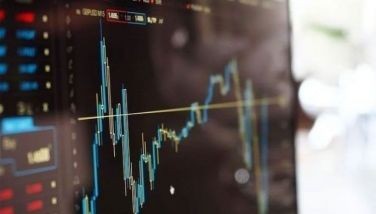Emerging Asia seen to grow at slower pace in coming quarters
MANILA, Philippines — Growth in Emerging Asian countries likely stabilized in the third quarter of the year, but would expand at a slower pace in the coming quarters, London-based think tank Capital Economics said.
In a market brief, the research firm said while some markets have yet to publish their national accounts figures, early indicators suggest that gross domestic product (GDP) growth stabilized across Emerging Asia last quarter.
“With looser fiscal and monetary policy and a turnaround in the electronics sector likely to offset the drag from weak global demand, we expect most countries to stage a gradual recovery over the coming quarters,” Capital Economics said.
“While we think the worst is now over for the region, the recovery will be slow going,” it added.
In an earlier report, Capital Economics said it found that its proprietary GDP Tracker, the advanced estimate of Singapore GDP and the export volumes data for Taiwan and Korea provide a good guide to the state of activity for the region as a whole.
“Our GDP Tracker and the Singapore GDP data suggest that while growth in Emerging Asia was very weak last quarter, the region has at least stopped slowing,” Capital Economics said.
It added that export volumes figures in the third quarter were a bit more upbeat, and suggest that regional growth picked up slightly.
On a country basis, recent data have been mixed. Hong Kong has being hit hard by the recent protests resulting in a collapse in retail sales and tourist arrivals, while very little sign of recovery is seen in Thailand as growth continues to steadily slow down after reaching a five-year high in 2017.
In contrast, Capital Economics said Taiwan was an outperformer as economic activity recently rebounded strongly.
“This outperformance is in large part the result of the trade war which has led to a surge in exports to the US as demand has shifted away from China towards alternative suppliers,” Capital Economics said.
In addition, growth in Korea and Malaysia appears to have leveled off in the third quarter of the year, but are likely to go in separate directions next year.
“While higher government spending should help to support a recovery in Korea, fiscal tightening is likely to become a major drag on growth in Malaysia,” the London-based firm said.
Capital Economics earlier said it expects the Philippine economy to grow 5.8 percent in 2019 and at six percent in 2020 after a weaker growth of 5.5 percent in the first semester of the year.
This growth is expected to accelerate to 6.5 percent by 2021.
While this would fall below the government’s expectations for the year, it would still make the Philippines among the fastest economies in the region.
- Latest
- Trending

























